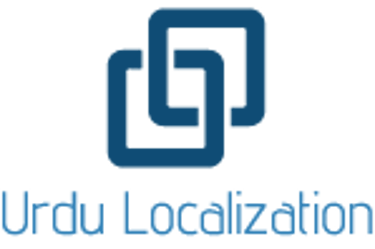
Why Accurate Translation Shapes User Experience and Loyalty
3 min read

In today’s interconnected world, businesses must communicate effectively with diverse audiences to thrive. For Urdu-speaking users, accurate translation is far more than converting words—it is about conveying the intended meaning, maintaining cultural relevance, and creating trust. In the absence of proper translation, even well-designed products or websites can feel distant or untrustworthy. Investing in professional Urdu translation services ensures that every interaction with your brand resonates with users, fostering loyalty and long-term engagement.
Building Trust Through Accurate Language
Trust is the foundation of every successful relationship, and the same applies to businesses and their customers. For Urdu-speaking users, content that reads naturally in their native language immediately signals credibility. Professional Urdu translators go beyond literal translation to ensure that the meaning, tone, and intent of the original content are preserved. Poorly translated text, on the other hand, can create doubts about professionalism and reliability. By delivering content that feels authentic, businesses show respect for their audience and build confidence in their brand.
Enhancing User Experience with Clarity and Cultural Sensitivity
A seamless user experience depends on clear and natural communication. Misunderstandings caused by inaccurate translation can frustrate users, reduce engagement, and even result in lost sales. Translating instructions, product descriptions, or app content into Urdu requires careful attention to linguistic nuances and cultural context. For example, the choice of formal or conversational phrasing, idiomatic expressions, and culturally familiar references significantly impacts how users perceive the content. A well-localized experience ensures that users can navigate platforms effortlessly, understand messages correctly, and feel a sense of familiarity and comfort.
Reducing Bounce Rates and Encouraging Engagement
When users encounter content in a language they do not fully understand, they are likely to leave quickly. High bounce rates signal poor engagement and can hinder conversions. Accurate Urdu translation encourages users to explore content, interact with features, and return to the platform. A website, app, or service that communicates clearly in Urdu allows users to navigate with confidence, deepening their connection with the brand. Over time, this approach fosters loyalty, ensuring users remain engaged and return for future interactions.
Localized Customer Support for Effective Communication
Translation also plays a vital role in customer support. Users expect to communicate in their preferred language when seeking assistance. Providing support materials, FAQs, and live chat in Urdu demonstrates that the company values its customers and is committed to resolving issues effectively. Accurate translation ensures that inquiries are understood correctly, minimizing miscommunication and improving response efficiency. By combining human Urdu translation with culturally sensitive support, businesses enhance customer satisfaction and reinforce trust.
Marketing Messages That Resonate
Marketing campaigns require careful adaptation to make an impact. Direct translation of slogans or promotional messages may fail to convey the same emotional appeal in Urdu. Professional Urdu translation services and content localization ensure that marketing content is culturally appropriate, maintains its intended tone, and engages the target audience effectively. For instance, an English tagline may require adaptation to maintain its persuasive or humorous impact when rendered in Urdu. This approach enhances engagement, increases click-through rates, and drives conversions by speaking directly to the audience in a language they understand and appreciate.
Cultural Sensitivity and Brand Loyalty
Accurate translation demonstrates respect for the language and culture of the target audience. For Urdu-speaking customers, seeing content that reflects cultural norms, values, and conventions strengthens emotional connections with the brand. Beyond language, cultural adaptation can include design choices, color schemes, and visual content that resonate with local expectations. Combining precise translation with culturally aware content shows that the business values its audience, creating loyalty that extends beyond transactions.
Improving Satisfaction and Encouraging Word-of-Mouth
A positive user experience in Urdu encourages users to share their satisfaction with others. Word-of-mouth referrals remain one of the most powerful ways to grow brand awareness, particularly in communities that rely on trust and recommendations. When content is accurately translated and culturally aligned, users feel confident recommending the platform to friends, family, and colleagues, amplifying reach organically.
SEO and Visibility in the Urdu-Speaking Market
Accurate translation also impacts search engine optimization. Simply translating English keywords into Urdu may not reflect local search behavior or popular terms. Professional translators who understand Urdu content localization can optimize content for search engines while maintaining readability and natural flow. This improves visibility, increases organic traffic, and ensures that businesses reach the right audience with content that is both relevant and discoverable.
Converting Visitors into Loyal Customers
Translation is a key factor in guiding casual visitors toward becoming loyal customers. When users understand content effortlessly, receive support in their language, and experience a culturally sensitive interface, they are more likely to complete purchases, subscribe to services, or engage further. A seamless Urdu experience reduces barriers to conversion, ultimately boosting revenue and customer retention.
Gaining a Competitive Edge
Businesses that prioritize accurate Urdu translation differentiate themselves in the market. Competitors who neglect linguistic and cultural nuances risk alienating users, while companies that invest in professional Urdu translation services demonstrate commitment, inclusivity, and attention to detail. In an increasingly competitive landscape, offering a user-friendly, culturally relevant experience creates a significant advantage, building trust, loyalty, and long-term growth.
Delivering content that is accurate, culturally sensitive, and professionally translated is not just a language exercise—it shapes the overall user experience. For Urdu-speaking audiences, professional Urdu translators ensure clarity, foster engagement, and help businesses establish credibility. From marketing campaigns to customer support and website content, thoughtful Urdu content localization strengthens relationships, increases satisfaction, and drives meaningful business outcomes, making it a vital investment for brands aiming to succeed in this market.
